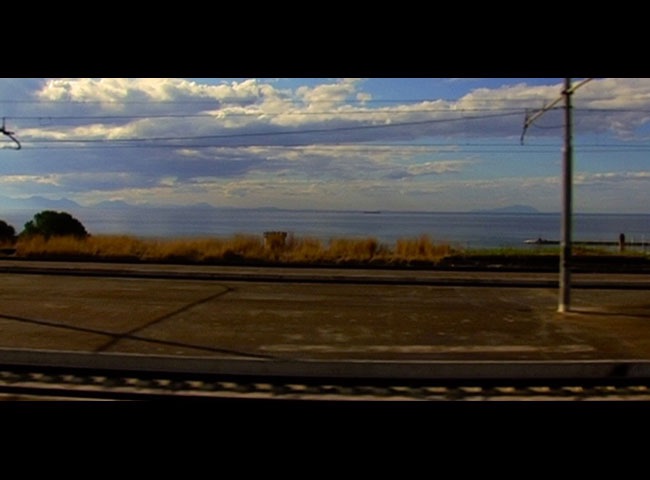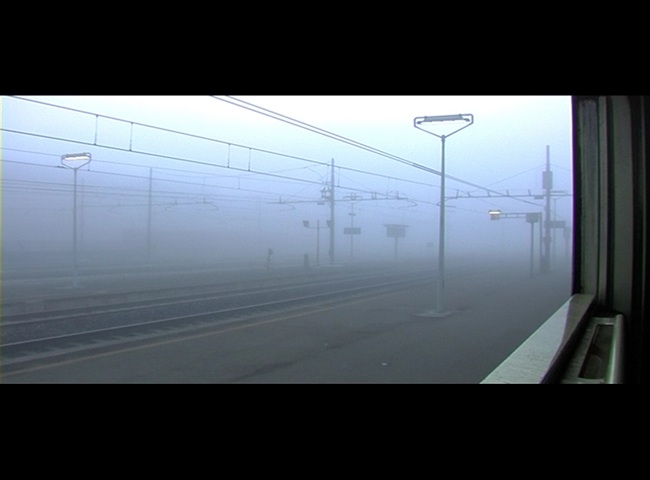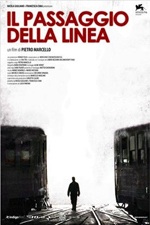Il Passaggio della linea
-
Réalisé par Pietro Marcello • Écrit par Pietro Marcello
-
Italie • 2007 • 60 minutes • 35 mm • Couleur
- Réalisation :
Pietro Marcello - Écriture :
Pietro Marcello - Assistanat de réalisation :
Sara Fgaier - Image :
Daria D'Antonio, Pietro Marcello - Son :
Michele Caruso - Montage :
Aline Hervé - Musique originale :
Marco Messina, Mirko Signorile
- Production (structure) :
Indigo Film - Coproduction :
Mercurio Cinematografica - Diffuseur :
RAI 3 - Ayant droit :
Indigo Film - Accès au fichier des sous-titres français :
Bpi - Bibliothèque Publique d'Information
- N° ISAN :
non renseigné
Résumé
Un récit nocturne, un voyage au cœur de l'Italie à travers des trains de nuits fréquentés par les pauvres et les immigrés, qui parcourent la péninsule du sud au nord et vice-versa. Les trajets, les gares, les paysages, les industries, les architectures, les visages et les dialectes se mélangent et offrent un instantané du pays.
Crossing the Line is a journey across Italy set to the rhythm of long-distance express trains, long abandoned to a destiny of slow decay, as they cross the Italian peninsula from South to North and back again, in a trip spanning night and day. It is a succession of landscapes, buildings, faces, dialects, voices and lives which blend together onboard the trains.
Inside the bare carriages, the lives of the passengers, who often speak different languages, intersect. They are mostly commuters travelling North, young people, foreigners, workers in termporary jobs who travel long distances using the cheapest and most available means of transportation.
Outside the train, through the dirty and steamed up windows, we see landscapes that have been painfully devastated by man and landscapes whose arrogant beauty is still intact.
Inside, the passage of time is marked only by changes in the light falling along the narrow aisles, revealing tired and listless faces. The lives of train passangers seem confined to this space, both a meeting point and a solitary place, suspended in time. They are held in continuous tension between the past and the future, between what has been and what will be.
Watching Italy go by from a train window, is a very old man: ninety year-old Arturo. In the pockets of his creased jacket, he carries the memories of an entire existance. Slumped in the grubby seat of an anonymous carriage, he describes his long life while his eyes seem to gaze far away. His is a tale of political and social engagement, but above all, the search for freedom and autonomy based on the undertanding of how fragile life is. This man will never get off the train. The train is his house, and his journey has no final destination.
The train routes, the stations, the carriages, the tracks and the old rail carriers take the trains through the fog of the plains and inside the gorges of narrow mountain valleys, caressing the coastlines ablaze with sunshine, and beyond. They take the train beyond its purpose as a means of transportation, to its apparant death when the train is swallowed by the ferries of the Straits of Messina and, deprived of its movement, it remains suspended, waiting for a new journey and a new train line to discover.
À propos du film
Sélections et distinctions
- 2007 • La Biennale di Venezia - Biennale de Venise • Venise (Italie) • Orizzonti Doc
Comment avoir accès au film ?
- Sortie en salle
-
Édition DVD
- Il n'existe pas d'édition DVD à notre connaissance
-
Accès VOD
- Il n'existe pas d'accès en VOD à notre connaissance
- Distribution
- Aide sur les moyens d'accéder à un film


